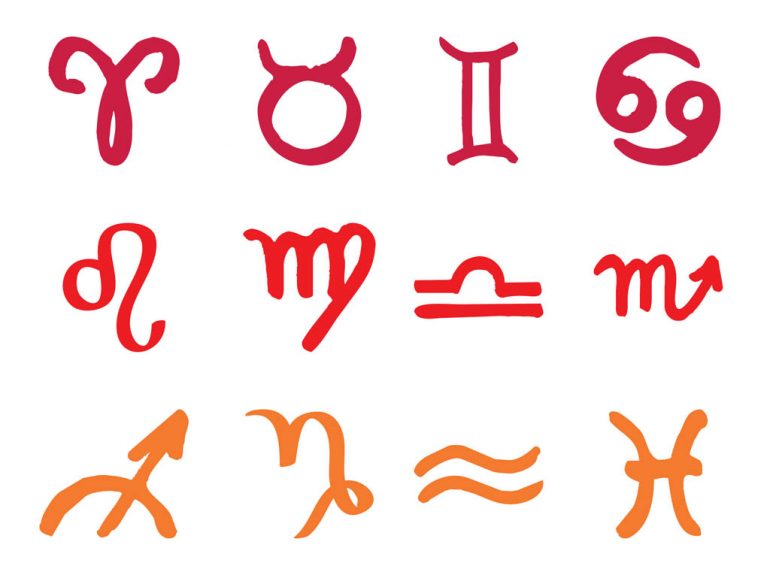I flipped the pages of the newspaper to get to the Horoscopes to see what the stars had in store for me today. Am I going to strike gold today or someone’s head with a hammer? Will tempers be flying or the flu? Will the love of my life walk into my life and sweep me off my feet or will I be sweeping up a mess I made?
Though these questions are never clearly answered, the explanation about Mercury being in retrograde or the stars being aligned leaves just enough room for interpretation and my mind automatically finds the answer it’s looking for – whether or not that’s what the newspaper says. Many believe that the position of stars and other bodies from outer space during a person’s birth is linked to events that take place in their lives and world; the science/art/logic of Astrology. Each birth date will have a unique reading and future prediction; every individual will have specific characteristics that are inextricably linked to when they were born [Time, Day, Month, Year].
Now, let’s be clear – After extensive research, I found that there are distinct models for Astrology past the simple sun sign chart we follow – Indian and Chinese astrology have their own zodiacs.
Astrology also plays a large part in Hindu culture, where it is believed that certain days and times are auspicious for you specifically – to get married, to start a new job and to make any other important life decision. When two people get married, their natal charts are compared to see if their personalities match according to their zodiac.
There are two fascinating sides to the story – It’s all in the stars & it’s all starry fiction. Let’s see if reality can win the argument:
It’s all in the stars!
Perhaps the simplest explanation that I came across for Astrology was as follows “Astrology does not offer an explanation of the laws of the nicer, nor why the universe exists. What it does, to put it in simplest terms, is show that there is a correspondence between macrocosm [planets] and microcosm [people]. In short, that “there is a rhythm to the universe, and that man’s own life partakes of this rhythm.”
The Application and Functions
Astrology far exceeds simply looking at your star sign and where and when you were born – it’s divided into sections, each of which are used for different purposes:
| Application or Use | Meaning |
| Predictive | To know about what lies ahead |
| Diagnostic | To act as an aid to solve difficult medical cases or for that matter understanding the root cause of a difficulty affecting any aspect of life. For example, a person may ask an astrologer the question as to why he is continually facing financial difficulties despite having a good income. |
| Basic nature and compatibility | To understand one’s basic nature and compatibility with profession or with a life partner based on each other’s zodiac signs or horoscope. |
| Decision making | This includes knowing the recommended auspicious time for a planned event such as marriage or an opening ceremony for one’s business or to answer a specific question such as when one should get married. |
This gives us an idea about the different functions of astrology that the experts look into before coming up with a chart for you specifically.
Experimental Evidence
A study by Michel Gauquelin in the 1950s showed a correlation between athletic ability and the position of Mars during their birth. However, when scientists attempted to replicate the results of Gauquelin’s, the results did not show the same statistical correlation. A few other studies were conducted to test the accuracy of predictions by astrologers, but did not yield any favorable results.
It’s all starry fiction
On the one hand, we have people who believe strongly in the idea of consulting astrologists, leading their lives according to readings. On the other, we have people who don’t believe in the legitimacy of astrology but also denounce it, calling it made-up and false.
Is Astrology categorized as a Science? Read more on the Berkeley website here.
The Forer Effect
Writer Peter M. Nardi wrote about how people easily fall victim to the Forer Effect (discovered by Bertram Forer) in which people believe the generally vague statements that are presented to them about themselves, supposedly, based on their star sign. They also accept them without demanding any further proof because these vague predictions/characteristics seem positive.
Experimental Evidence
To further disprove the scientific validity of astrology, a test was carried out in which six astrology experts were given 23 test subjects with specific traits, life history, and photos assigned to them. Their task was to match the subjects with the right set of birth charts. At the same time, as a control, one non-astrologer was part of the experiment to compare whether or not the experts would have more success trying to match the right person with the right natal chart. The test proved that astrology stands on very weak grounds as the experts had as much of a chance as the non-expert in matching the right subject to the right chart.
The problem of twins
Skeptics also constantly question that if a person – not twins, we’ll get to that – born at the same time and place and date as another, not related, are meant to have similar, if not exactly the same, qualities, traits, habits, likes and dislikes, yet that isn’t seen to be the case. Identical twins are a fine example of how that belief can also easily be rendered wrong. Though any set of twins are very close and share more similar traits than any other non-twin siblings, they too are different. If anything, by this theory – that a person’s life is determined where the stars were when they were born and the significance of place, date and time – all sets of twins (fraternal or not) should resemble in characteristics.
Irregularities in practice
Strong belief in astrology has also caused religious debate amongst some communities as some religions strongly oppose using it to determine the future. A lot of scientists call Astrology a ‘pseudo-science’. Why? Scientific studies aside, there are many theoretical problems – one problem is that the way astrology is conducted throughout the world is inconsistent (in Asia, it isn’t carried out the same way as in the West) and there is also an inconsistency in the interpretation of natal charts (again, they might be perceived differently by astrologists worldwide based on what astrological system they follow), the fact that not all the planets are taken into consideration and the question about why the date, time, day of birth rather than when the baby was conceived and so on. Questions like these only give the skeptics and non-believers more ammunition to further question its accuracy.
Starring Truth
Personally, I am not a skeptic, nor a believer. I do fall for the Forer effect every now and then and I feel Astrology for those who aren’t experts is all about perspective: Some people don’t mind -knowing full-well that whatever their horoscope reads is fiction – reading it to get a positive bump at the start of the week. Or they enjoy deeming it ‘BS’ when it’s something negative. In short, they don’t take consider it a serious field of study. For others, a good or bad horoscope can determine their entire day or week and they tread very carefully based on it.
The general consensus in the scientific community is that Astrology is not a reliable method to seek answers and it also makes for a weak foundation to base decisions off.
I am not here to denounce astrology. I’m simply giving you all the evidence. As I said earlier, there are days when I want to look up my horoscope and believe that something good will happen and other days when I really don’t care what is ‘written in the stars’ for me. It looks to me that Astrology can do no harm if you don’t take it seriously. So, take it lightly [or don’t take it at all] – it’s Science, guys!










